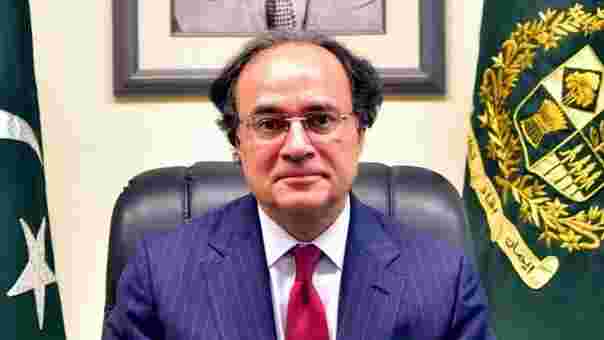Islamabad – In a pivotal address on Wednesday, Federal Minister for Finance Muhammad Aurangzeb underscored the urgent need for the International Monetary Fund (IMF) to integrate social protection mechanisms into its lending frameworks, particularly for economically vulnerable nations.
The minister made this appeal during a high-level meeting of Finance Ministers, Central Bank Governors, and Regional Financial Institution Heads from the Middle East, North Africa, Afghanistan, and Pakistan (MENAP) region, chaired by the IMF’s Managing Director.
The press release detailing the minister’s intervention emphasized his call for the IMF to intensify its efforts in enhancing financing mechanisms for climate resilience. He stressed that the devastating impacts of climate change, particularly on low-income and developing nations, must be a key priority for global financial institutions. Aurangzeb advocated for a broadening of debt relief programs and concessional financing options, highlighting that these are crucial for countries struggling under the dual burdens of environmental degradation and economic fragility.
Minister Aurangzeb welcomed the IMF’s ongoing review of the Low-Income Countries Debt Sustainability Framework (LIC-DSF), which now incorporates emerging challenges such as climate-related risks, domestic public debt management, and complex debt restructuring scenarios. He emphasized that the growing complexity of these issues necessitates a more adaptive and comprehensive approach from international financial bodies.
“Embedding social protection in lending frameworks is essential to cushion the most vulnerable sections of society from the harsh impacts of economic reforms,” Aurangzeb stated, reiterating the importance of aligning economic stabilization efforts with social welfare.
Separately, the minister engaged with institutional investors in a roundtable discussion organized by Jefferies International. During this session, he presented a positive outlook on Pakistan’s economy, crediting the successful implementation of the Stand-By Arrangement (SBA) with the IMF as a driving force behind recent economic improvements. Aurangzeb emphasized key reforms aimed at enhancing the country’s tax-to-GDP ratio, curbing energy sector inefficiencies, and improving the governance of State-Owned Enterprises (SOEs). He also highlighted the government’s ongoing efforts to privatize underperforming public assets and streamline federal expenditures.
The minister’s comprehensive approach, combining macroeconomic reform with targeted social protection and climate resilience, reflects a forward-thinking vision for Pakistan’s economic trajectory amidst global challenges.
